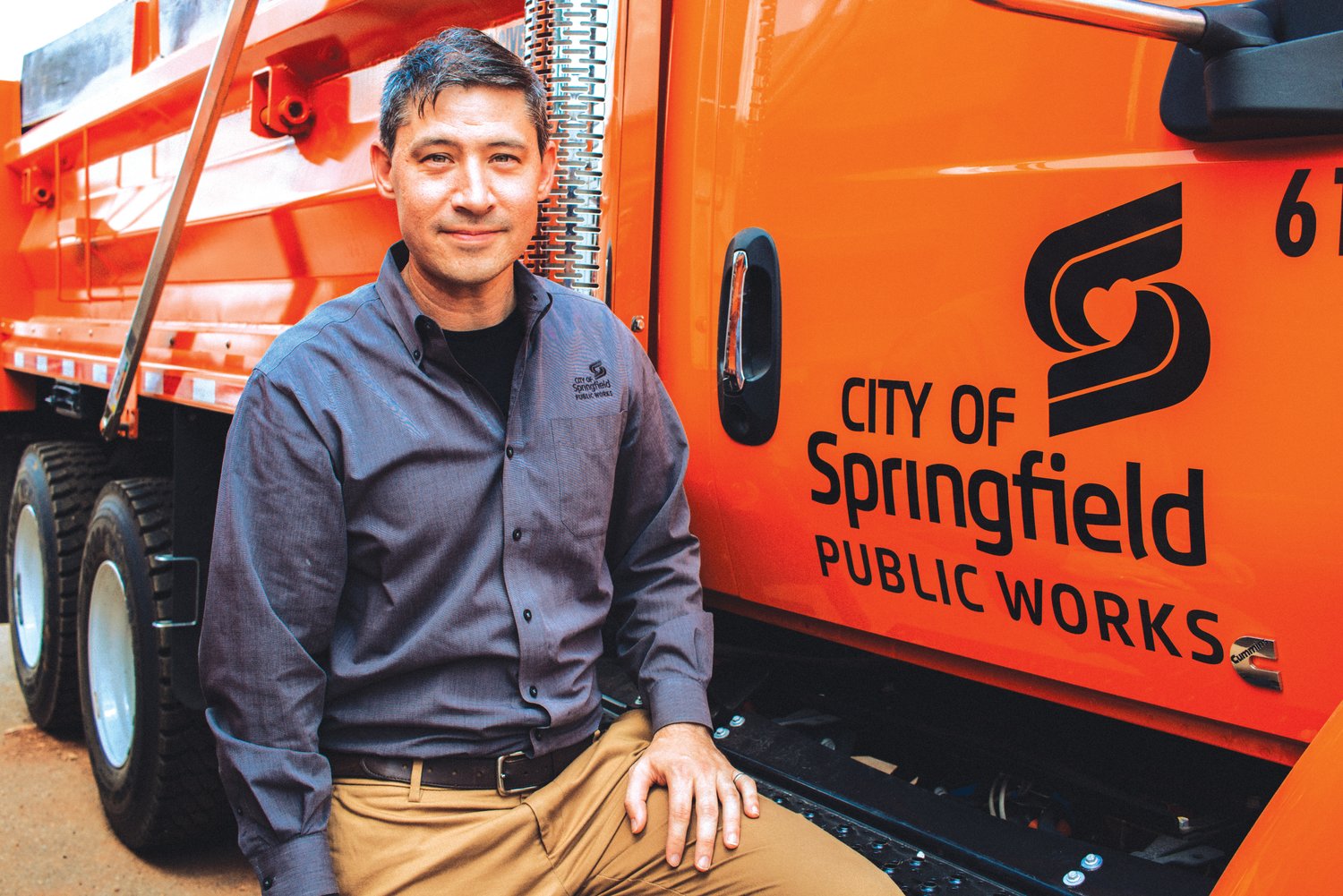YOUR BUSINESS AUTHORITY
Springfield, MO
YOUR BUSINESS AUTHORITY
Springfield, MO

What is the scope of the work you manage for the city?
Street operations is essentially half of the Public Works Department. We have 120 employees and with the approved budget, we’re going to get a few more. There’s nine different work groups split up into two sections: street infrastructure maintenance and public grounds. Street infrastructure maintenance is roadway, sidewalk, stormwater infrastructure. And really the whole division does emergency response for snow removal and storms. Then public grounds has mowing; we have an inventory of 20,000-plus trees, so we have an urban arboriculture group, horticulture group. They’re doing landscaping as well. We also have a cemetery that we take care of. We’ll mow thousands of acres throughout a season. The roadway system, there’s 1,700 lane miles. We have 500 miles of sidewalk. We have 500-plus different infrastructure of stormwater inlets. It’s a pretty diverse group of work.
You were named the 2022 Young Engineer of the Year by the Missouri Society of Professional Engineers. What does that award recognize and, specifically, what does it say about your work?
When I started my career as an engineer, I mostly wanted to get a job [laughs] and at the time it was a very different landscape than it is now. Super competitive. I was looking for organizations to be a part of in the engineering world but also to have something on my resume. The society focuses on advocating for licensure and professionalism. They give this award out based on individuals who are involved in the society but also their local community, what they do in terms of humanitarian efforts and for the profession itself. I think what stood out is my career in public service: 10 years at the city. And then I helped co-found an Engineers Without Borders professional chapter in Springfield.
What’s the goal of Engineers Without Borders?
It’s taking those professional skills to impoverished communities. For engineers, it’s a lot of providing water or very basic human needs. As a water resources engineer originally, that’s been a lot of our efforts. We’ve been approved to do a project in Peru. We actually just had our first fundraiser recently. We’re hoping to build a rainwater catchment system. That can range from $10,000 to $15,000.
How has the tight labor market impacted recruitment and retention for your staff?
Fortunately, the city has always and continues to offer really good benefits and solid retirement and long-term pension packages. Our human resources and workforce development groups are really strong in that. They help us a lot from a recruitment and retention standpoint. As far as challenges, there are many. We are down 20% and have been since I’ve been in my current role, which has been a year now. A lot of that has to do with [the fact] people can just ask for more and they do. We’ve seen a lot of people leave even though we’ve been trying to backfill, and it’s really tough.
How many positions could you fill today if you had the candidates?
In my group, 26. Some of the other challenges, and I’ve heard that this is happening everywhere: There’s people leaving with little or no notice.
With new development in the city, it seems residents are more concerned with flooding and stormwater issues. Is urban flooding a growing problem?
When you think about rainfall data and how much rain we get and that there seems to be more and more impervious area, it seems like it’s only getting harder and harder to manage that. Our stormwater engineering division and our development and plan reviewers, they do a great job of making sure that we’re within regulations. It seems to be a more considered aspect of development. That’s beneficial for cities and for citizens because we’ve got developers that are more conscientious; there’s constituents that are more active in paying attention to different options for what policies could exist.
What are some of the things you’ve learned about the role of a leader since being promoted to superintendent of streets last year?
With this big of a group and this many responsibilities, there are many things outside of my control. I tend to be a stereotypical engineer in the way that I try to manage everything as closely and to the details I can. I’ve got supervisors to help with that workload and so it’s a lot of collaboration. Building those relationships and that trust is far more important than other aspects that I would’ve leaned on in the past.
Connected to Watkins Elementary School is a new storm shelter now under construction.
Updated: Systematic Savings Bank to be acquired in $14M deal
STL construction firm buys KC company
Webster University's deficit triples
‘Dress for your day’: Companies are relaxing dress codes amid evolving ideas about fashion
Missouri House speaker accused of obstruction in ethics probe
Former CoxHealth colleagues starting communications firm
Developer targets opening by month's end for $10M apartment complex